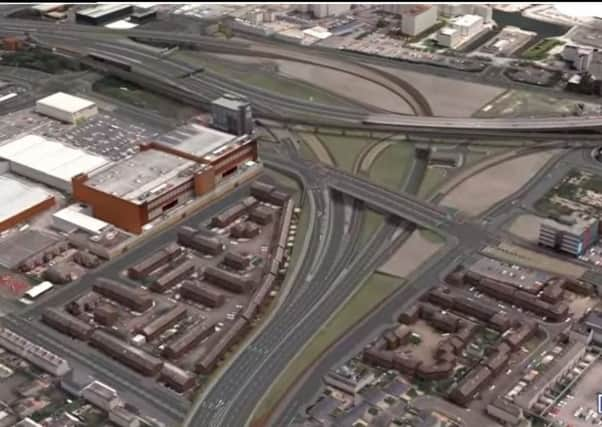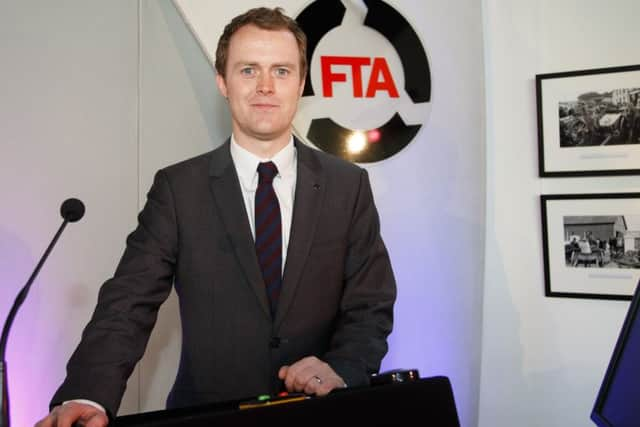If the York St junction road plan collapses, it will be bad for transport as a whole in Northern Ireland


When the scheme was first announced around nine years ago, local business involved in transport of goods greeted the project with a sign of relief.
The junctions around Belfast’s M1, M2 and M3 experience very high levels of traffic which can cause long delays to all road users whether they are commercial vehicle operators, public transport or private car drivers and it wasn’t a sustainable system.
Advertisement
Hide AdAdvertisement
Hide AdBy improving journey time reliability, traffic flow and lowering emissions, the project was set to help commercial vehicle operators move goods across Northern Ireland more swiftly and efficiently boosting the Northern Ireland economy in the process.


Yet again the scheme faced another delay this week, with the High Court ruling there were mistakes in the way the Department for Infrastructure appointed a contractor.
Every day the project is delayed, Belfast’s roads become more congested and difficult to navigate. As commercial vehicle operators continue to face unnecessarily long journey times, the industry’s ability to move goods across the North efficiently becomes compromised. As a region, in terms of connectivity and infrastructure we also continue to fall behind the Republic of Ireland and Great Britain which is a significant influencing factor for inward investment.
Despite facing several setbacks since its inception, most prominently in recent years a lack of funding, the project is now fully viable with funding secured via the DUP and Conservative Party Confidence and Supply agreement of June 2017. Our concern now is that in the interim period of another delay, the project could suffer even more severe setbacks if that political agreement were to be compromised.
Advertisement
Hide AdAdvertisement
Hide AdThe High Court ruling is the sole obstacle it now faces. If the scheme collapsed due to this procurement error, it would be a serious setback to the prosperity of the logistics sector, and in turn, the wider Northern Ireland economy.
Whatever the outcome of the hearing, FTA hopes the plans for the scheme will stay in place, and its members along with the wider public will have the chance to benefit from a much-improved York Street Interchange. Efficient logistics is vital to keep Britain trading, directly having an impact on more than seven million people employed in the making, selling and moving of goods. With Brexit, new technology and other disruptive forces driving change in the way goods move across borders and through the supply chain, logistics has never been more important to UK plc.
• Seamus Leheny is Northern Ireland manager of the Freight Transport Association (FTA), which represents more than 17,000 businesses across what it describes as the UK logistics sector